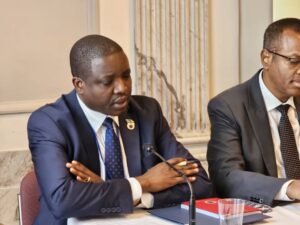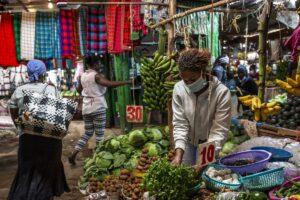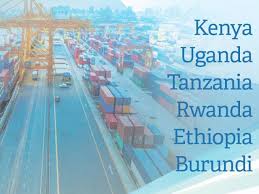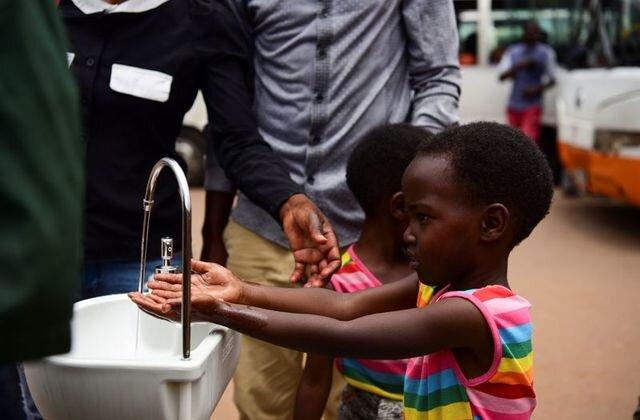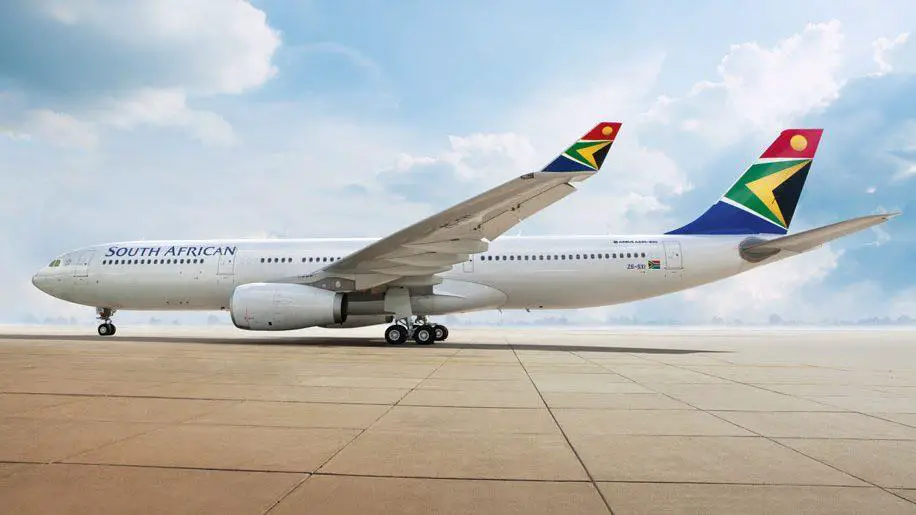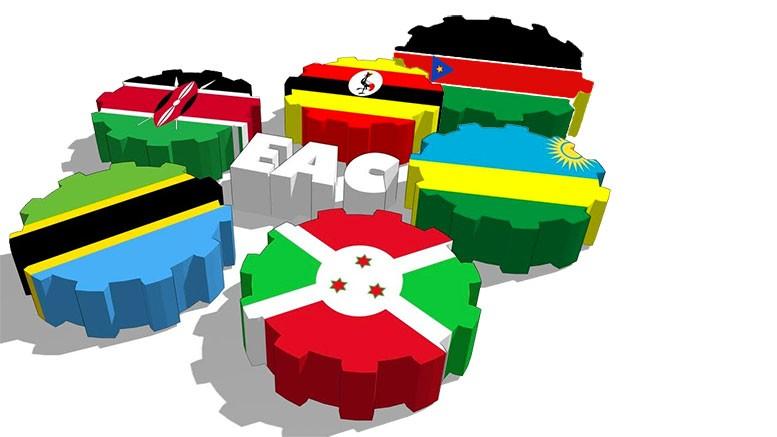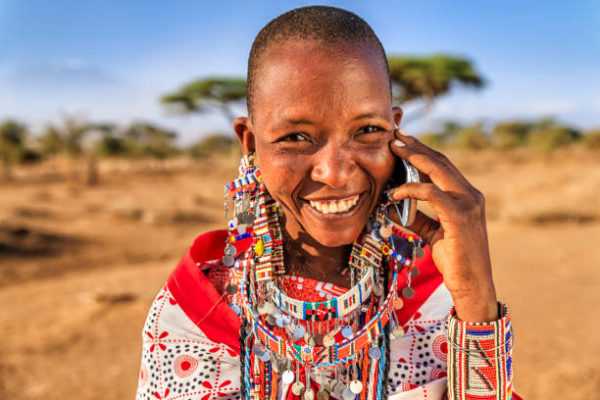- Kenya, Tanzania braces for torrential floods as Cyclone Hidaya approaches
- EAC monetary affairs committee to discuss single currency progress in Juba talks
- Transport and food prices drive down Kenya’s inflation to 5% in April
- Payment for ransomware attacks increase by 500 per cent in one year
- History beckons as push for Kenya’s President Ruto to address US Congress gathers pace
- IMF’s Sub-Saharan Africa economic forecast shows 1.2 percent GDP growth
- The US Congress proposes extending Agoa to 2041, covering all African countries
- Millions at risk of famine as fuel tax row halts UN aid operations in South Sudan
Browsing: Rwanda
The effects of Covid-19 have continued being felt in the East African region despite governments developing various interventions to counter them. Interventions have included the provision of healthcare remedies as well as stimulus plans to bail out communities who have been ravaged by the pandemic. The highlight of the inter-East African relations has been a diplomatic tiff between Kenya and Tanzania that had threatened the livelihoods of the region who depend on the two strongest economies.
The markets in the region have remained slow with the economies expected to get a hit for months to come. Various entities including the World Bank have revised their projections of the growth of the region’s economy. The triple effects of Covid-19, floods and locusts have made the economies of this region suffer greatly. Kenya has also received a negative rating by Moody based on her rising debt.
In this edition, we highlight how …
The East African economies were looking forward to 2020 with a lot of optimism. While there were issues with inflation and money circulation in Kenya, projections still showed the country would comfortably manage a growth range of above 5 percent. All the other eastern African countries were projected to do even much better with Rwanda leading in terms of growth averaging 7 percent. Then, Coronavirus happened. This has reversed the projections with fear that the region with the highest growth rate in Africa will stagnate. This has already been felt with stock markets across the region registering massive capital loss and foreign investors shying away from the market. The region is also looking at ways of sustaining their economies amid lockdowns in Uganda and Rwanda, partial lockdown in Kenya and a non-restrained movement approach in Tanzania.
The International Monetary Fund’s (IMF) latest World Economic Outlook projections for 2020 pegs Kenya …
Rwanda is poised to launch what it refers to as the ‘COVID-19 recovery fund’ that will serve to finance economic recovery efforts post the virus pandemic.
Among the sectors slated to benefit from the recovery fund is the country’s tourism sector. It only makes sense since, the tourism sector is one of the most affected sectors along with the catering and hospitality sectors as well.
In so doing Rwanda, which actually called for an emergency East Africa Community (EAC) Heads of State meeting to deliberate regional response to the coronavirus pandemic, has again set precedent been the first country in the region to set aside recovery funds for the coronavirus aftermath.
The affected businesses across various economic sectors will be afforded access to low interest and even interest free loans. The loans are expected to help the business get back on their feet serving as operating capital.
Of these, it …
Rwanda coronavirus (COVID-19) containment landscape just got stronger as the Executive Board of the International Monetary Fund (IMF) on Thursday approved the disbursement of $109.4 million to be drawn under the Rapid Credit Facility (RCF), IMF statement said.
According to information from the IMF, this will serve to meet Rwanda’s urgent balance of payment needs stemming from the outbreak of the COVID-19 pandemic.
Rwanda is one of the East African nations to be hurt by the pandemic, whereby—COVID-19 cases stand at 84.
The lender noted that the economic impact of the COVID-19 pandemic is rapidly unfolding, with the near-term outlook deteriorating quickly.
According to the IMF statement, the pandemic has triggered a rise to significant fiscal and external financing needs.
Hence, in curbing possible devastating impacts of the outbreak, authorities have acted fast by putting in place measures to help contain and mitigate the spread of the disease.
According to …
The economies of the East African region have for a long time recorded impressive growths among other African peers. They have been expanding at an average rate of 6.3 percent, with that of Rwanda expected to lead at eight percent from 7.8 percent. This growth, however, is facing one of its biggest challenges with the emergence of the Novel Coronavirus, scientifically referred to as COVID-19 as well as local challenges including political processes and the recent locust invasion. These effects are likely to cut down on any projected growth and gains made over the years. Kenya, the largest economy in the region, will most likely be hit hard with the halting of international flights and tourism. The bourse has already recorded a bear run, similar to other markets in the region. Burundi and Tanzania are preparing for elections, Kenya is seeking constitutional changes and Uganda is looking for ways to …
The deadly coronavirus (COVID-19) which has now spread over 60, with 93,000 cases and more than 3,000 deaths in China, is projected to hurt the African airline landscape, taking away $40 million in revenue.
At the moment, Africa has witnessed confirmed cases in Senegal, Nigeria, Egypt, Algeria, Morocco and Tunisia.
The outbreak has made big-industrial players such as British Airlines, United Airlines, Cathay Pacific to trim their routes to various destination, including northern Italy, South East Asia, to evade further trouble with the virus.
On that line, African airlines have taken their own path to curb the scenario, as Tanzania’s emerging airline halted its scheduled flights to China, Kenya’s court order made Kenya Airways postpone flights to China, and Rwanda did the same.
However, Ethiopia faced criticism for not realizing the flights’ cancellation to China, like its fellow players.
According to the International Air Transport Association (IATA), the global aviation …
East African nations Kenya, Ethiopia, Rwanda, Uganda and Tanzania have been on a green energy harnessing mission creating thousands of megawatts they may not consume by the year 2022.
These countries could find themselves in a conundrum where they have too much electricity which people cannot use. This possible scenario could be created by the likelihood of not enough people being able to purchase this power or the inability to use it due to different reasons.
The biggest challenge for this power being a burden to these governments could be because most of them lack the infrastructure to transmit this power to those who need it. In addition, countries that have been purchasing power from their neighbours are also moving to produce their own meaning they will be struck by a surplus they cannot utilise and in return suffer massive costs of having idle power.
Power capacity surplus
With the …
The United Kingdom wants to enter into a trade pact with the East African Community member countries.
The United Kingdom which is into a one-year transition phase after it left the European Union, is keen on having long-term and sustainable trade ties with the EAC region.
During the one-year transition period set to end on December 31, the UK- EAC trade engagement will be under European Union protocol where most regional countries apply to Everything But Arms treaty.
UK High Commissioner to Rwanda, Jo Lomas, said that they are looking to negotiating a trade deal somewhat similar to EAC’s Economic Partnership Agreement with the European Union.
“We are looking to have a trade deal with the EAC, along the lines of what was agreed upon by the EU. Ultimately, we would like to be negotiating something more ambitious but we are keen not to disrupt trade,” she said.
Also Read:
…Rwanda is set to construct its first powdered milk factory in an attempt to boost profit for its livestock sub-sector.
This came after a joint venture firm owned by Rwandan investors and South African in collaboration with dairy farmers in Gicumbi District agreed to invest $38 million towards the development.
The powdered milk factory will be situated in Byumba Sector of Gicumbi District in Northern Province of Rwanda. Construction of the plant is expected to start by the end of 2020 and it will take a year for the factory to be completed so it will be completed by the end of 2021.
Also Read: Rwanda I&M Bank raises the limit on unsecured loans
The planned factory is set to be the largest milk-processing factory in the country and will offer major relief to the dairy farmers, it is the first of its kind in Rwanda.
The installed capacity of …
Digital skills gap and high cost of digital services and broadband are hindering Rwanda’s efforts to boost digital transformation, says the latest World Bank Economic Update on Rwanda.
The report reviews key building areas of Rwanda’s digital economy, highlights key progress made and challenges as the country hope to achieve high-income status by 2050 and upper-middle-income status by 2035.
Despite the public investment in digital public service delivery and digital infrastructures, the World Bank report notes that digital adoption needs to improve with interventions that will remove barriers to uptake, increase affordability and create local demand for digital services.
Also: Rwanda launches campaign to collect 1M smartphones
According to the World Bank, increased digital transformation will only be possible if more users are brought online and become digitally enabled through greater access to digital devices and connectivity.
“Fundamentally to be part of the digital economy, people need to be connected; …

